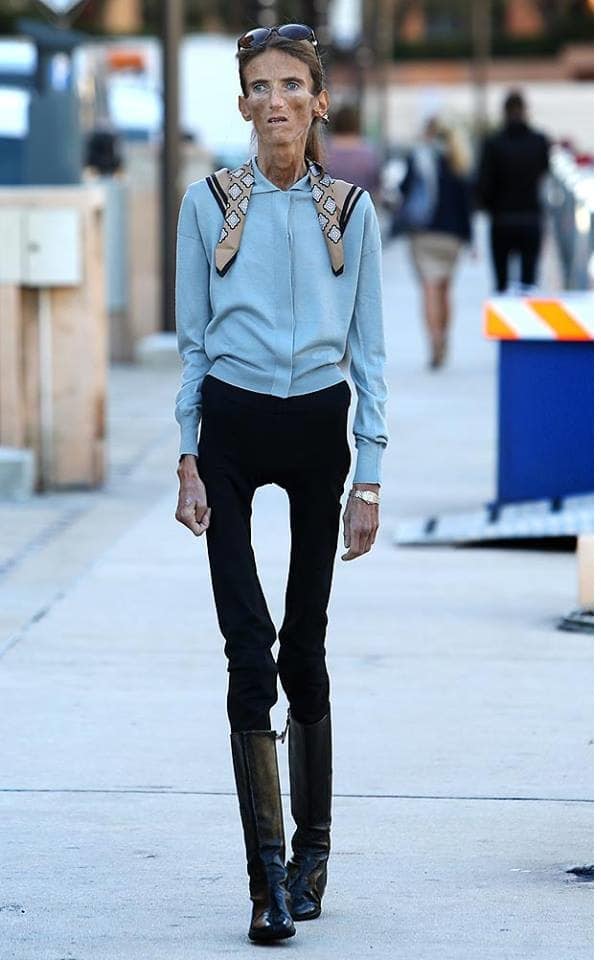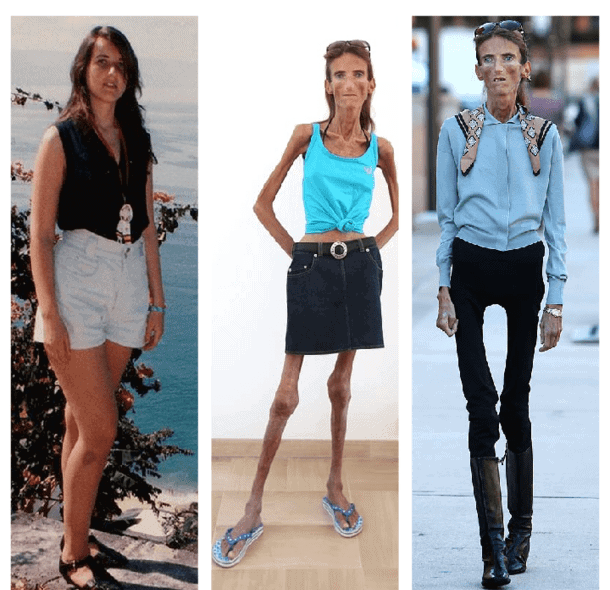Do you ever wonder about the extremes of human form, the individuals who exist at the very edges of the spectrum? The quest to understand the skinniest people in the world unveils a complex interplay of genetics, health, and societal pressures, offering a stark reminder of the diverse realities of the human experience.
In a world where body image and weight are constant topics of discussion, it's important to look beyond the headlines and understand the stories behind the individuals who are often labeled as the "skinniest." While it is important to recognize that the notion of "skinny" can be subjective and often carries negative connotations, we must also acknowledge the medical conditions and circumstances that may result in extremely low body weight. These individuals offer us a unique perspective on the human body and its capacity to adapt to challenging circumstances, and how the term "skinny" is perceived and defined.
One of the most well-known figures in this conversation is Elizabeth Anne Velsquez, also known as Lizzie Velsquez. Born on March 13, 1989, this American motivational speaker, activist, writer, and YouTuber has a unique story. She has an extremely rare condition that prevents her from producing body fat. Despite the challenges this presents, at the age of 23, she became a motivational speaker, using her experiences to fight against bullying. Velasquezs journey highlights the importance of resilience and self-acceptance in the face of adversity.
| Full Name | Elizabeth Anne Velsquez |
| Date of Birth | March 13, 1989 |
| Nationality | American |
| Known For | Motivational Speaker, Activist, Writer, YouTuber |
| Medical Condition | Rare condition preventing body fat production |
| Key Achievements | Motivational speaker against bullying, author of multiple books |
| Weight | Approximately 58 pounds (26 kg) |
| Height | Varies, but her condition makes it difficult to measure accurately |
| Website (Reference) | Official Website |
While Velsquez's condition is unique, other individuals have also captured public attention due to their extremely low body weight. The term "skinniest person in the world" often leads to discussions about medical conditions and lifestyle choices. It is important to emphasize that the cases of extreme thinness are usually linked to a variety of factors, that must be understood with sensitivity and awareness. The most common factors may include genetic predispositions, medical conditions, eating disorders, and social pressures, and are critical in understanding each individuals experience.
One such case is Kristina Karyagina, a Russian woman whose story brings light on the profound impact of anorexia. Diagnosed from Barnaul, in the south of Russia, her case highlights the dangers of this eating disorder, which has put her on the list of the thinnest people in the world, with her weight recorded as just 17 kg. It is crucial to emphasize the seriousness of anorexia, which is a dietary disorder and is characterized by abnormally low body weight. In such situations, the body's bone structure becomes increasingly visible, which makes her look fragile and vulnerable. Such cases serve as a stark warning of the physical and psychological toll of eating disorders and the urgent need for professional support.
Then there is Valeria Levitin, once hailed as the "world's skinniest woman." Her story highlights the damaging effect of extreme dieting that goes beyond normal. Valeria, from Monaco, whose body weight was approximately 50 lbs (27 kg), was tall, reaching the height of 5 ft 8 inches, her experience serves as a crucial reminder of the devastating effects of unhealthy dieting and the importance of promoting a healthy relationship with food and body image.
- Understanding Mkvspoint Your Goto Resource For Movie Downloads
- Exploring The Fascinating World Of Camilla Araujo Assistant Extraordinaire On Onlyfans
The case of Tom Staniford is another crucial case. Being considered among the skinniest people in the world, these instances often emphasize that physical appearances do not define an individual's worth. It is very important to note that the pursuit of a particular body type can lead to mental health problems like anorexia, bulimia, or body dysmorphic disorder. Each person's body type is unique, and it should be appreciated in its own context, where the promotion of body positivity and self-acceptance is emphasized.
The criteria used to determine the "skinniest person" are not always straightforward. While the term "slim," "thin," and "skinny" are often used interchangeably to describe individuals with minimal flesh or fat, there are significant differences. The individuals whose bone structures become visibly prominent are not always in healthy condition. The weight measurements taken in these situations depend on a wide range of factors, and should always be considered together with medical assessments, the evaluation of body composition, and the assessment of the individual's health status. The focus needs to remain on the person's overall well-being rather than solely on physical appearance or weight.
These examples offer a glance into the different factors that shape an individual's physical state. It is very important to address a variety of factors that are usually involved, which include rare medical conditions, lifestyle choices, and eating disorders. While it can be tempting to fixate on the physical appearance of these individuals, it's important to recognize the complex nature of their experiences, especially the stories that lie behind each of these cases. The individual stories highlight the importance of a multifaceted approach to healthcare, that focuses on providing empathetic, personalized support, and addressing the underlying physical and psychological challenges. It is important to promote open conversations about body image, health, and the diverse nature of the human experience as the stories of the "skinniest" individuals emphasize that our focus should be on the health and well-being of each person.
Beyond individual cases, the broader societal context also plays a role. The promotion of unrealistic beauty standards through media and popular culture adds pressure, which in turn increases the likelihood of eating disorders and unhealthy relationships with food. It is very important to celebrate all body types and advocate for body positivity. Promoting healthy lifestyles, with emphasis on exercise, balanced diets, and mental wellness can create a more inclusive and supportive environment where people feel comfortable in their own skin.
The stories of the skinniest people in the world emphasize the need for a more compassionate and educated way of thinking about body image, health, and identity. It is important to realize that behind every body is a unique story. It is important to promote the well-being of the individuals by celebrating their unique qualities and fostering healthy communities.


